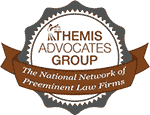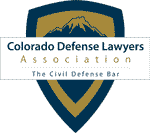© Harris, Karstaedt, Jamison & Powers, P.C., (2020) Copyright
As part of sweeping legislation signed into law by President Trump on March 18, 2020, two laws were enacted that provide workers with paid leave for reasons related to the coronavirus (COVID-19) pandemic. One of the new leave provisions, the “Emergency Family and Medical Leave Expansion Act,” allows 12 weeks of partially compensated FMLA leave to care for a child whose school or childcare facility has been closed due to COVID-19. The leave applies only to workers who have been employed by their current employer for 30 days.
The other new law providing employee leave, the “Emergency Paid Sick Leave Act,” requires employers to provide 80 hours of paid sick time to employees in specified circumstances, including:
- A quarantine or isolation order for the employee or someone the employee is caring for, or medical advice to self-quarantine.
- When the employee has symptoms of COVID-19; or
- When the employee’s child’s school or childcare facility is closed.
Employers with 500 employees or more are exempt from the laws, and employers may exclude employees who are health care providers and emergency responders. The legislation also allows for future regulations exempting businesses with fewer than 50 employees from providing leave for childcare if the leave would jeopardize the viability of the business. The laws take effect within 15 days of passage; the leave benefits will expire on Dec. 31, 2020.
Employers should familiarize themselves with the new leave requirements to ensure compliance.
- Coronavirus relief legislation requires employers with fewer than 500 employees to provide 12 weeks of FMLA leave for childcare reasons related to COVID19.
- The new FMLA leave must be compensated after the first 10 days, at two-thirds of an employee’s wage, up to $200 per day.
- Employers must also provide 80 hours of paid sick time for specified reasons related to COVID-19.
The Emergency Family and Medical Leave Expansion Act
In general, the Emergency Family and Medical Leave Expansion Act amends the federal Family and Medical Leave Act (FMLA) to allow employees to take leave for certain childcare purposes related to COVID-19. It requires employers to partially compensate that leave after the first 10 days. Covered Employers The expanded FMLA requirements apply to private employers with fewer than 500 employees, and all government employers. Thus, small employers that are not subject to the FMLA’s regular leave provisions are subject to the new FMLA leave rules that allow employees to take leave for specified childcare purposes related to COVID-19.
The law allows for future regulations to exempt businesses with fewer than 50 employees if the leave would jeopardize the viability of the business. The law states that employers with fewer than 50 employees will not be subject to civil damages in an employee action brought under the FMLA for violation of the new provisions.
Covered Employees
All employees who have worked for their current employer for 30 calendar days are eligible for the new FMLA leave; however, employers are permitted to deny leave to employees who are health care providers or emergency responders. Using Leave Eligible employees of covered employers may take up to 12 weeks of FMLA leave if they are unable to work (or telework) because they must care for a son or daughter under 18 years of age. The need for leave must be caused by the closing of the child’s elementary or high school or place of care, or the unavailability of the child’s childcare provider, due to a declared COVID-19 public health emergency. “Childcare provider” means a provider who receives compensation for providing childcare services on a regular basis. Where the need for leave is foreseeable, employees should provide their employers with as much notice of leave as is practicable.
Compensation
Employers are not required to pay employees for the first 10 days of the new FMLA leave, but employees may substitute any accrued vacation leave, personal leave, or medical or sick leave for this unpaid leave. Thereafter, the employer must compensate FMLA leave taken under the new provision at a rate of at least two-thirds of the employee’s regular rate of pay, based on the number of hours the employee would otherwise normally be scheduled to work, up to a maximum of $200 per day, or $10,000 total. Special calculation rules apply for employees with variable schedules. Special rules apply to multi-employer collective bargaining agreements.
Job Protection
While FMLA leave is usually job-protected, meaning employees who take leave must be restored to their position (or an equivalent) when they return to work, the new law provides a limited exception to this requirement. Employers with fewer than 25 employees are not subject to the job restoration requirement, if: (a) The employee took FMLA leave under the new COVID-19 expansion of the law; (b) The employee’s position no longer exists due to economic conditions or changes in operating conditions of the employer that affect employment and are caused by a public health emergency; (c) The employer makes reasonable efforts to restore the employee to an equivalent position; and (d If these efforts fail, the employer makes reasonable efforts to contact the employee if an equivalent position becomes available. The contact period is for one year, beginning on the earlier of: (1) The date on which the employee’s need for leave ends; or (2) Twelve weeks after the employee’s leave begins.
Tax Credit
Employers are entitled to a credit against the tax imposed by section 3111(a) or 3221(a) of the IRS Code for each calendar quarter of an amount equal to 100% of qualified sick leave wages paid. Tax credits are also available for self-employed people.
Emergency Paid Sick Leave Act
The second law passed providing paid employee leave in relation to the coronavirus is the Emergency Paid Sick Leave Act.
Covered Employers
The paid sick leave law applies to all private employers with fewer than 500 employees, and all government employers.
Covered Employees
All employees are covered, regardless of the length of their employment with their current employer. However, employers may choose not to provide paid sick leave to employees who are health care providers or emergency responders.
Using Paid Sick Leave
All full-time employees, regardless of the length of time they have worked for their employer, are entitled to 80 hours of paid sick time, available for immediate use. Part-time employees are entitled to an amount of paid sick time equal to the average number of hours they work over a two-week period. Paid sick time may be taken when the employee: (1) Is subject to a federal, state or local quarantine or isolation order related to COVID-19; (2) Has been advised by a health care provider to self-quarantine due to concerns related to COVID-19; (3) Is experiencing symptoms of COVID-19 and is seeking a medical diagnosis; (4) Is caring for an individual who is subject to a federal, state or local quarantine or isolation order related to COVID-19, or who has been advised by a health care provider to self-quarantine; (5) Is caring for his or her child if the child’s school or place of care has closed, or the child’s care provider is unavailable, because of COVID-19 precautions; (6) Is experiencing another substantially similar condition specified by the Secretary of Health and Human Services (HHS).
Employers may not require employees to use other paid leave before using paid leave under the new law. The law allows for future regulations exempting businesses with fewer than 50 employees from providing leave for reason 5, above. An employer may require the employee to follow reasonable notice procedures after taking leave the first time.
Compensation
Under the new paid sick leave law, employers must pay employees their regular rate of pay if the employee is taking leave for a reason related to their own symptoms of, or exposure to, COVID-19. Employees who are taking leave to care for family members are only entitled to be paid at two-thirds of their regular rate. Daily and total maximum limits apply, as set forth in the compensation table below.
| Reason for Leave | Daily Pay Rate/Cap | Total Pay Cap |
| Quarantine or isolation orderAdvice from health care provider to self-quarantine
Experiencing symptoms of COVID-19 and seeking a medical diagnosis |
Regular rate of pay up to a cap of $511 | $5,110 |
| Caring for an individual subject to quarantine or isolation order, or who has been advised by a health care provider to self-quarantine
Caring for own child whose school or place of care has closed, or whose care provider is closed or unavailable Experiencing other substantially similar condition specified by HHS |
Two-thirds regular rate of pay, up to a cap of $200 | $2,000 |
Employer Notice Requirements
The Department of Labor is charged with making a required employer notice available within one week of the law’s passage. Employers must post the notice in conspicuous places on their premises, where notices to employees are customarily posted. Enforcement Employers who violate the new paid sick leave law will be subject to penalties under the federal Fair Labor Standards Act. Tax Credit Employers are entitled to a credit against the tax imposed by section 3111(a) or 3221(a) of the IRS Code for each calendar quarter, of an amount equal to 100% of qualified sick leave wages paid. Tax credits are also available for the self-employed.
Enforcement
Employers who violate the new paid sick leave law will be subject to penalties under the federal Fair Labor Standards Act.
Tax Credit
Employers are entitled to a credit against the tax imposed by section 3111(a) or 3221(a) of the IRS Code for each calendar quarter, of an amount equal to 100% of qualified sick leave wages paid. Tax credits are also available for the self-employed.
Colorado Requires Certain Employers to Provide Paid Sick Leave for COVID-19 Testing
On March 11, 2020, Colorado Department of Labor and Employment (“CDLE”) published emergency rules that temporarily require employers, in certain circumstances, to provide four days of paid sick leave to employees undergoing COVID-19 testing. The rules became effective March 11, 2020, will stay in effect for at least 30 days, or longer if the state of emergency continues.
The rules apply to all employers in the following fields:
- Leisure and Hospitality;
- Food services;
- Child care;
- Education (including related services such as cafeterias and transportation);
- Home health care (working with elderly, disabled, ill, or otherwise high-risk individuals);
- Nursing homes; and
- Community living facilities.
The four days of leave must be provided to employees in the above industries who:
- have flu-like symptoms and
- are being tested for COVID-19.
Application
An employer who already offers paid sick leave that complies with these rules does not need to offer additional days. However, an employer must offer additional days when an employee meets the criteria above, after he or she has previously exhausted his or her paid leave.
When pursuing and providing sick leave under these rules, both employees and employers should comply with the federal Family Medical Leave Act. However, FMLA provisions do not narrow the rights and responsibilities of these rules and no employer may terminate an employee for inability to provide documentation during an illness covered by these rules. The employer must pay the eligible employee at his or her regular rate of pay, including all forms of wage and compensation, for the regularly worked hours. Failure to comply with these rules may result in a failure to provide wages violation. The paid leave will end if the COVID-19 test comes back negative.







 Harris, Karstaedt, Jamison & Powers, P.C.
Harris, Karstaedt, Jamison & Powers, P.C.